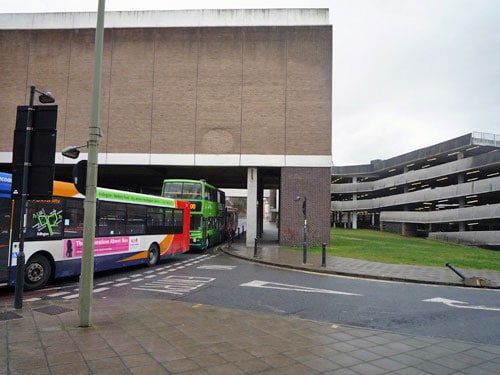Readers Question: Why may it still make economic sense for the company to put on a coach for just one or two passengers, rather than turning them away?
Recently I again had to travel to London by coach and discovered that it was a good idea to book early in case the coach was full! Was the coach company being more sensible now?
If a bus has a capacity of 80 seats. It might need an average of say 30 customers per trip to break even.
If the company are averaging less than 30 customers per journey, their fixed and variable costs will be higher than their revenue and eventually they will go out of business.
Can it make sense to run coaches that are nearly empty?
Running a coach service early in the morning or during winter may mean the bus company can expect less than 30 passengers. From one perspective, this does not make sense. It is below the break-even point – average revenue less than average cost. It may even be a case where the marginal cost is greater than the marginal revenue from an extra service.
In fact running services at unsocial hours of the morning will be unpopular with drivers, and the company may have to pay night-time rates.
However, there can be a good long term profit maximising logic behind running these services – even if only a few passengers use them.
- Marketing. It is a strong marketing ploy to be able to offer 24 hour, 365 days coverage. If people know you run a service all around the clock, it will give them confidence to choose coach journeys as their preferred choice of transport.
- Attract and hold onto long term customers. Only a few people may use an unpopular service. But, the 24 hour service will encourage many to get the coach in the first place. If customers fear they may turn up and no coaches are available, they may choose other forms of transport, such as car and trains and the company loses the business of customers.
- If you lose a customer for one journey, the company might not lose very much. But, if the customer would make 50 journeys a year, that is different. Companies have to be aware that one bad experience could make the company lose their services for a long time.
- Barriers to entry. If an existing coach company is running a 24 hour service, it may deter a new coach company from setting up. They may feel that they couldn’t compete with this all round performance, which makes the industry less profitable. On the other hand, a new company could be sneaky and just cherry pick the busiest times of the day to offer services.
- Costs. Running a coach service will have both fixed and variable costs. Once you have bought coaches and given drivers an annual contract, the marginal cost of extra services will be relatively low – just the petrol and maintenance. Since you have already paid for many fixed costs (drivers annual salaries, buses, marketing) the marginal cost of an extra journey may be covered by just 10 or 20 passengers. Another way to think about it the topic. Would the company want to lay off drivers for a quiet time in winter? It may lose its drivers. The company might as well keep going through quieter periods.
- Non-profit maximising decisions. We may assume every company is a profit maximiser. But, there maybe an element within the company, that they want to provide a good, all round comprehensive bus service, and they don’t mind if a few services are loss making.
- Market share vs Profit. Another issue is that firms often concentrate on gaining market share, rather than profit maximisation. See: Profit vs Revenue maximisation
Running full services
Often the coaches from Oxford to London are full at busy times. It would be quite profitable for the company, if they could run more services. Also, if customers fear they may not get on the bus, this becomes a big disincentive for using this transport choices. However, there may be practical difficulties involved.
– They don’t have enough buses and drivers to run services. They could buy more buses and employ more drivers, but then they will have more wasted resources during quiet times
– The council may place limits on the number of buses they can run during peak hours because of the problem of congestion.
Related

